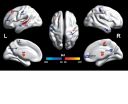(Press-News.org) Deadly familial stomach and lobular breast cancers could be successfully treated at their earliest stages, or even prevented, by existing drugs that have been newly identified by cancer genetics researchers at New Zealand's University of Otago.
The researchers, led by Professor Parry Guilford, show for the first time that the key genetic mutation underlying the devastating conditions also opens them to attack through drug therapies targeting other cellular mechanisms.
There is currently no treatment for this kind of gastric cancer other than surgical removal of the stomach as a preventive measure in those identified as carrying the mutated gene. Lobular breast cancer is hard to detect by mammography and mastectomies are also undertaken by some carriers.
The researchers' findings appear in the US journal Molecular Cancer Therapeutics.
The team used genomic screening to search for vulnerabilities in the cancer cells that lack the tumour-suppressor protein E-cadherin. The genetic mutation that causes this protein to be lost is common in hereditary diffuse gastric and lobular breast cancers.
E-cadherin is not a traditional drug target for these forms of cancer because the protein is present in healthy cells but absent in malignant ones. However, Professor Guilford and his team predicted that its loss might create other vulnerabilities in these cancer cells.
Professor Guilford says the research team used an approach of searching for 'synthetically lethal' combinations of E-cadherin loss with inactivation of other proteins, which together cause cell death.
After conducting a genome-wide functional screening of non-malignant human breast cells with, and without, E-cadherin loss, they identified a large number of such vulnerabilities that can be targeted by existing drug compounds.
PhD student and study lead author Bryony Telford says further analysis showed that the most promising avenues of attack were against G-protein coupled receptor (GPCR) signalling proteins and those involved in maintaining the cell cytoskeleton.
"We found that GPCR proteins were strikingly abundant in cells lacking E-cadherin, as were diverse types of cytoskeletal proteins," Ms Telford says.
Next, the researchers screened selected drug classes known to interfere with these proteins, and found that the E-cadherin-lacking cells proved highly sensitive to many of the compounds while their normal counterparts did not.
Professor Guilford says that the synthetic lethal effects identified are highly promising for developing early chemoprevention treatments for people who carry the E-cadherin mutation and as a result are at high risk of gastric and lobular breast cancers.
"Making such drug treatments a reality would mean delaying or completely avoiding the trauma that high-risk individuals experience by undergoing major preventive surgery at a young age," he says.
The study was undertaken in collaboration with researchers from Melbourne's Peter MacCallum Cancer Centre and the University of Melbourne. The drugs were screened at the Walter and Eliza Hall Institute's High-Throughput Chemical Screening Facility in that same city.
Professor Guilford's work was supported by the Health Research Council of New Zealand.
In the 1990s he began leading an ongoing collaboration with a large M?ori family from the Bay of Plenty that identified E-cadherin as the first known gene for inherited gastric cancer.
This allowed family members to be tested for the gene and to decide whether to take preventative action. This research was originally published in the leading journal Nature in 1998 and the findings have now led to hundreds of lives being saved around the world.
Kimihauora Trust Manager Maybelle McLeod, who originally contacted the University and Professor Guilford to seek help in discovering the cause of the disease ravaging her family, says the findings are very exciting.
"The only choice at the moment for those of us at genetic risk is to undergo drastic surgery, and having your stomach removed is a hard thing to bite. This latest research holds out a new hope for a gentler way to save the lives of our affected whanau members," Ms McLeod says.
INFORMATION:
ANN ARBOR, Mich. -- If every new car made in the United States had a built-in blood alcohol level tester that prevented impaired drivers from driving the vehicle, how many lives could be saved, injuries prevented, and injury-related dollars left unspent?
Researchers at the University of Michigan Injury Center and the University of Michigan Transportation Research Institute studied the impact of installing these alcohol ignition interlock devices in all newly purchased vehicles over a 15-year period; their estimates of injury prevention and cost savings are significant.
They ...
Research at the University of Adelaide's Waite campus has shed light on the action of the serious agricultural pest, cereal cyst nematode, which will help progress improved resistant varieties.
Published in the journal New Phytologist, the researchers showed how the composition of the cell wall that surrounds the feeding sites of these tiny parasitic worms in the plant roots differs between resistant and susceptible varieties of barley.
"A type of fibre that we usually associate with wholegrain and healthy foods ? beta-glucan ? accumulates in the cell walls surrounding ...
Experts are calling for a global review of guidelines used to diagnose sepsis, after a study found one in eight patients with infections severe enough to need admission to an Intensive Care Unit in Australia and New Zealand, did not meet current criteria.
Researchers from Monash University and the Australian and New Zealand Intensive Care Society (ANZICS) reviewed data collected on over a million patients admitted to 172 Intensive Care Units (ICU). Covering a 14-year period, 109,663 patients with infection and organ failure were identified with possible sepsis. However, ...
The team demonstrated a quantum on/off switching time of about a millionth of a millionth of a second - the fastest-ever quantum switch to be achieved with silicon and over a thousand times faster than previous attempts.
"Quantum computing exploits the fact that, according to quantum mechanics atoms can exist in two states at once, being both excited and unexcited at the same time. This is known as a superposition state, and is most famously illustrated by Schrödinger's quantum cat which is simultaneously dead and alive" said Dr. Ellis Bowyer, one of the Surrey ...
New big data methodology can analyse over 1 billion pieces of data
The methodology can potentially isolate the areas of the brain involved with other cognitive problems, including Obsessive Compulsive Disorder, ADHD and schizophrenia.
The functional differences between autistic and non-autistic brains have been isolated for the first time, following the development of a new methodology for analysing MRI scans.
Developed by researchers at the University of Warwick, the methodology, called Brain-Wide Association Analysis (BWAS), is the first capable of creating panoramic ...
A cancer drug could be made 50 times more effective by a chemical found in stinging nettles and ants, new research finds.
Researchers at the University of Warwick found that when the chemical, Sodium Formate, is used in combination with a metal-based cancer treatment it can greatly increase its ability to shut down cancer cells.
Developed by Warwick's Department of Chemistry, the drug, a compound of the metal ruthenium called JS07, is capable of exploiting a cancer cell's natural weaknesses and disrupts its energy generation mechanism.
Laboratory tests on ovarian ...
In a world first, researchers have found that a naturally occurring chemical attracts pregnant malaria-transmitting mosquitoes - a discovery which could boost malaria control efforts.
The chemical, cedrol, found in mosquito breeding sites near Africa's Lake Victoria, could be used in traps that would 'attract and kill' the female mosquito, preventing reproduction before she lays hundreds of eggs.
A child dies every minute from malaria, according to World Health Organization estimates. In Africa, malaria parasites carried by the female Anopheles gambiae mosquito are ...
Trauma is responsible for more global deaths annually than HIV, malaria and tuberculosis combined. Yet healthcare systems in many countries are missing out on life-saving treatments learnt on the battlefield, according to a review by King's College London and published today in the Journal of the Royal Society of Medicine.
Medical advancements made by the military in times of conflict, are increasingly seen in the hospitals of high income countries but are being missed in poorer countries, where trauma is the leading cause of death in young people. Many innovations by ...
Highlights
Compared with uninfected (HIV-/HCV-) kidney transplant recipients, mono-infected HIV+ (HIV+/HCV-) recipients had similar 5-year and 10-year kidney survival rates, while HIV+ recipients co-infected with HCV (HIV+/HCV+) had worse kidney survival rates.
Patient survival among mono-infected HIV+ recipients was similar to uninfected recipients but was significantly lower for co-infected recipients.
Over the last decade there has been a 10-fold increase in the number of kidney transplants performed in HIV+ patients.
Washington, DC (March 19, 2015) -- HIV+ ...
PHILADELPHIA - Greening vacant lots may be associated with biologic reductions in stress, according to a new study from the Perelman School of Medicine at the University of Pennsylvania. Residents who walked near newly greened vacant lots had significantly lower heart rates compared to walking near a blighted, or neglected, vacant lot.
"Our goal was to scientifically explore the connection between city environments and stress," said the study's lead author, Eugenia C. South, MD, MHSP, a physician in the department of Emergency Medicine at Penn. "We used heart rate as ...

